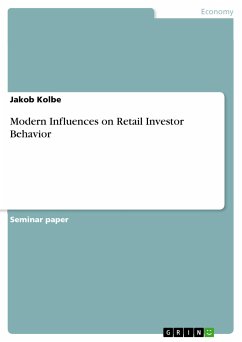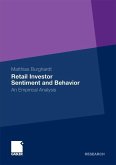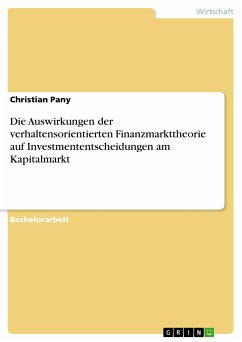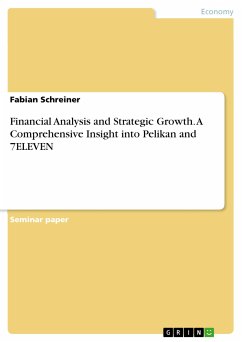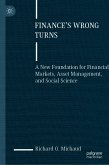Seminar paper from the year 2023 in the subject Business economics - Investment and Finance, grade: 1,5, University of Frankfurt (Main) (Lehrstuhl für Personal Finance), course: Personal Finance, language: English, abstract: This paper examines the modern influences impacting retail investor behavior, concentrating on three primary areas: neo-brokers and payment for order flow (PFOF), social media platforms, and smartphones. The landscape for retail investors has evolved dramatically due to these factors. The paper begins by laying a theoretical foundation for understanding retail investor behavior, comparing rational investment models with the practical realities shaped by various biases. It delves into the role of neo-brokers, highlighting their innovative business models, user-friendly interfaces, and the implications of PFOF. The discussion addresses how these platforms alter investor engagement and decision-making processes. The influence of social media platforms, including Reddit's WallStreetBets, Twitter, and Seeking Alpha, is explored in depth. The paper considers the ways social media transforms information dissemination and interaction among retail investors, shaping their investment strategies and behaviors. Additionally, the paper investigates the impact of smartphones on trading habits, focusing on how mobile technology facilitates increased engagement and accessibility. It discusses the behavioral changes prompted by the convenience of mobile trading and the psychological and cognitive effects associated with it. In conclusion, the paper offers recommendations for regulatory and educational measures to address the challenges posed by these modern influences. It emphasizes the importance of promoting informed and rational investment decisions in the context of rapidly evolving technology and market practices.
Dieser Download kann aus rechtlichen Gründen nur mit Rechnungsadresse in A, B, BG, CY, CZ, D, DK, EW, E, FIN, F, GR, HR, H, IRL, I, LT, L, LR, M, NL, PL, P, R, S, SLO, SK ausgeliefert werden.

